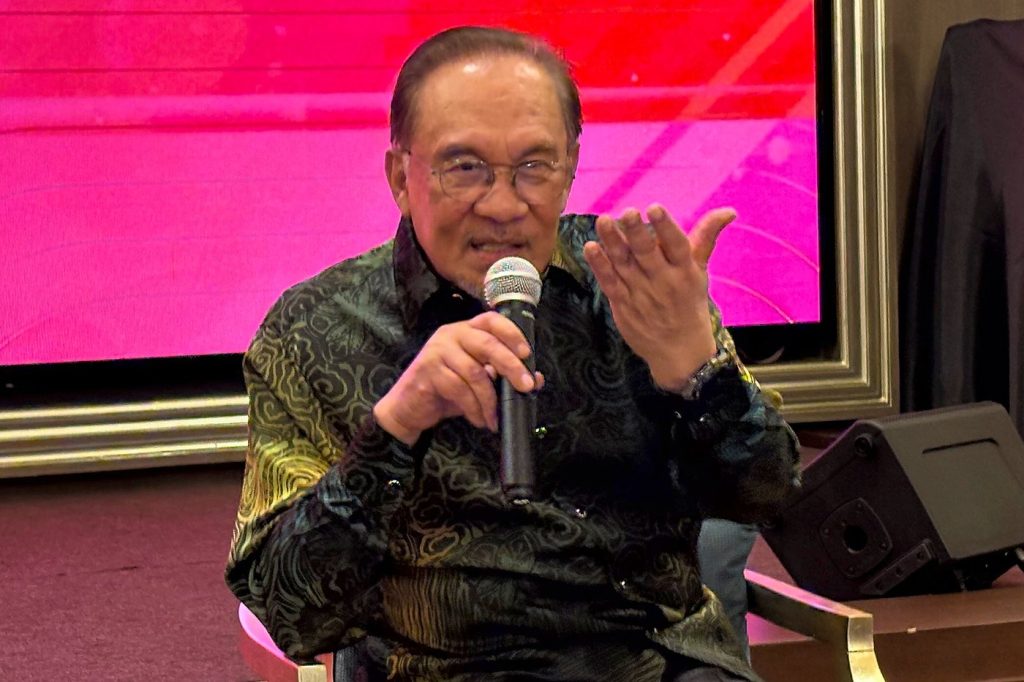PUTRAJAYA, Malaysia (AP) - Malaysian Prime Minister Anwar Ibrahim has announced that the upcoming two-day Southeast Asian summit will focus on critical issues, including the ongoing civil war in Myanmar, maritime disputes in the South China Sea, and recent U.S. tariff hikes. The summit, commencing on Monday, will be hosted in Malaysia, the current chair of the 10-member Association of Southeast Asian Nations (ASEAN). Following this meeting, a summit with Chinese Premier Li Qiang and leaders from the Gulf Cooperation Council (GCC) will take place on Tuesday.
Anwar highlighted the existing strong ties between the GCC nations—Bahrain, Kuwait, Oman, Qatar, Saudi Arabia, and the United Arab Emirates—and the United States. He noted that the GCC seeks to strengthen its relationship with China as well. “We want to have that synergy to enhance trade investments and foster more effective collaboration,” he stated during a media briefing late Wednesday.
ASEAN countries are currently grappling with punitive U.S. tariffs ranging from 10% to 49%. In a recent policy update, U.S. President Donald Trump announced a 90-day pause on these tariffs, prompting countries like Malaysia and Singapore to swiftly enter trade negotiations with Washington. Anwar conveyed that the U.S. government has agreed to review Malaysia's situation “sympathetically,” indicating a potential path for negotiation. At the same time, ASEAN is working collectively to develop a unified strategy for negotiations with the U.S.
In addition to engaging the U.S., Anwar emphasized the importance of building economic resilience within ASEAN by strengthening ties with other global partners such as China, India, and the European Union. He expressed confidence that the rivalry between the U.S. and China would not create divisions within ASEAN, as the region continues to maintain cooperative engagements with both superpowers.
Moreover, Anwar addressed the complexities surrounding territorial disputes in the South China Sea, an area that China claims nearly in its entirety. He also brought attention to the ongoing conflict in Myanmar following the military takeover in 2021. Last month, Anwar met with Myanmar's military chief, General Min Aung Hlaing, in Bangkok, and held virtual discussions with the opposition National Unity Government. Although the initial focus of these discussions is on humanitarian assistance, Anwar expressed hope that they might eventually lead to a peace process.
Despite the significant challenges posed by the military’s refusal to comply with ASEAN’s peace plan—which includes provisions for humanitarian aid and negotiations—Min Aung Hlaing has been barred from attending ASEAN meetings. Critics of the military rule argue that aid is not permitted into regions outside the army's control, and they accuse the military of breaching its self-declared ceasefire through multiple airstrikes.
The forthcoming ASEAN summits provide an opportunity for member states to address collective concerns and pursue collaborative strategies amid a dynamic geopolitical landscape. As the region navigates its relationships with global powers like the U.S. and China, it remains committed to advancing economic cooperation and seeking peaceful resolutions to ongoing conflicts.











